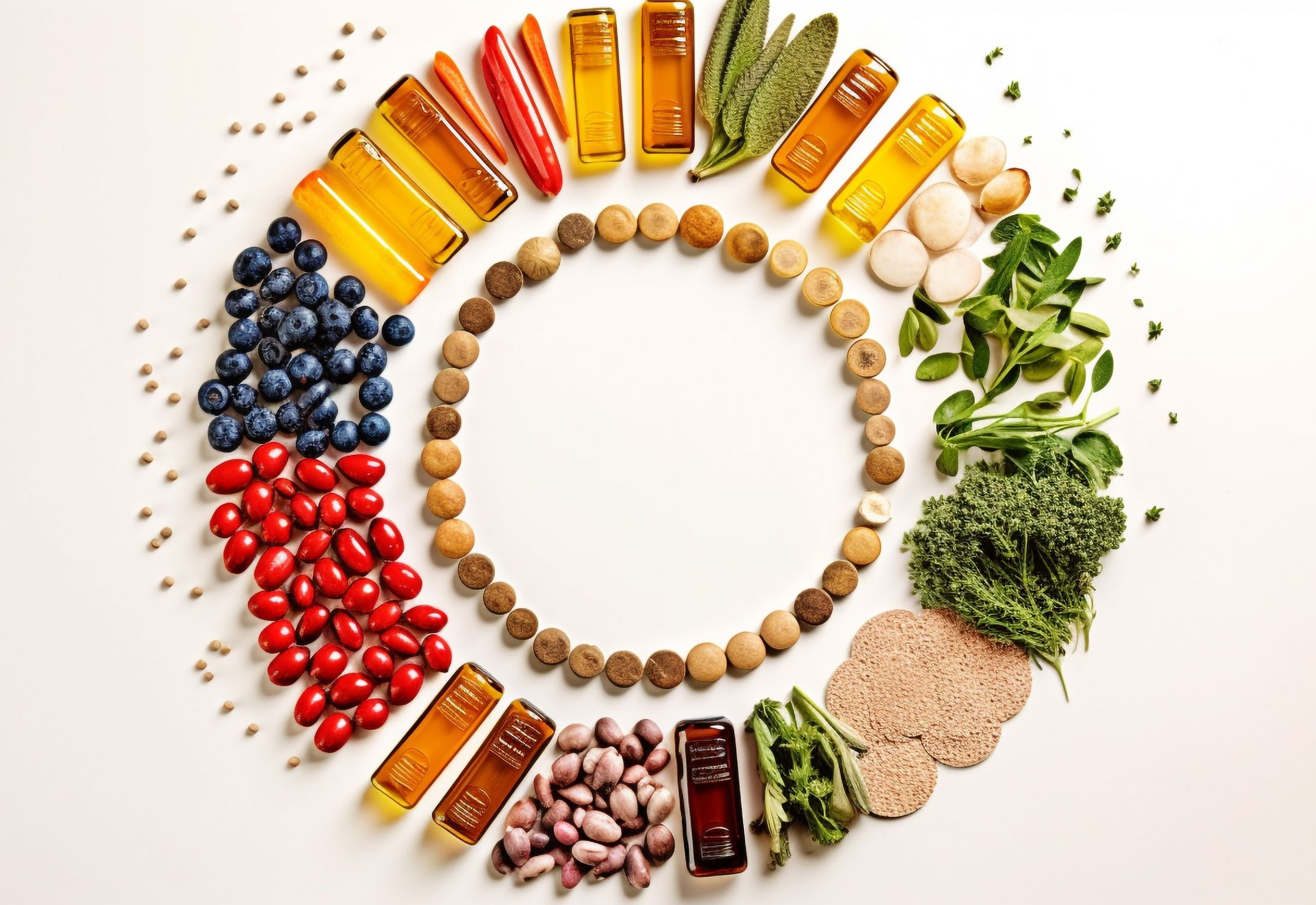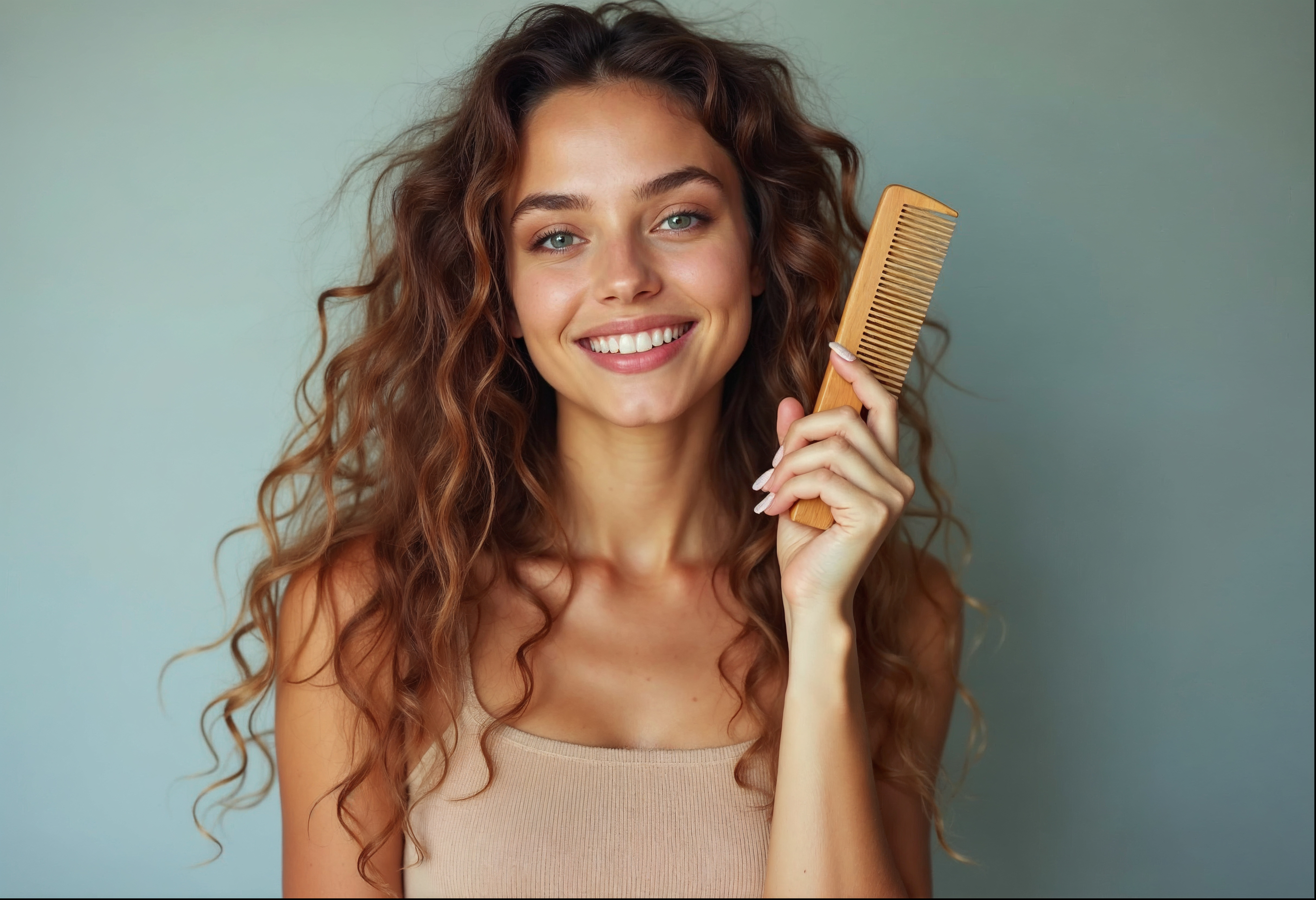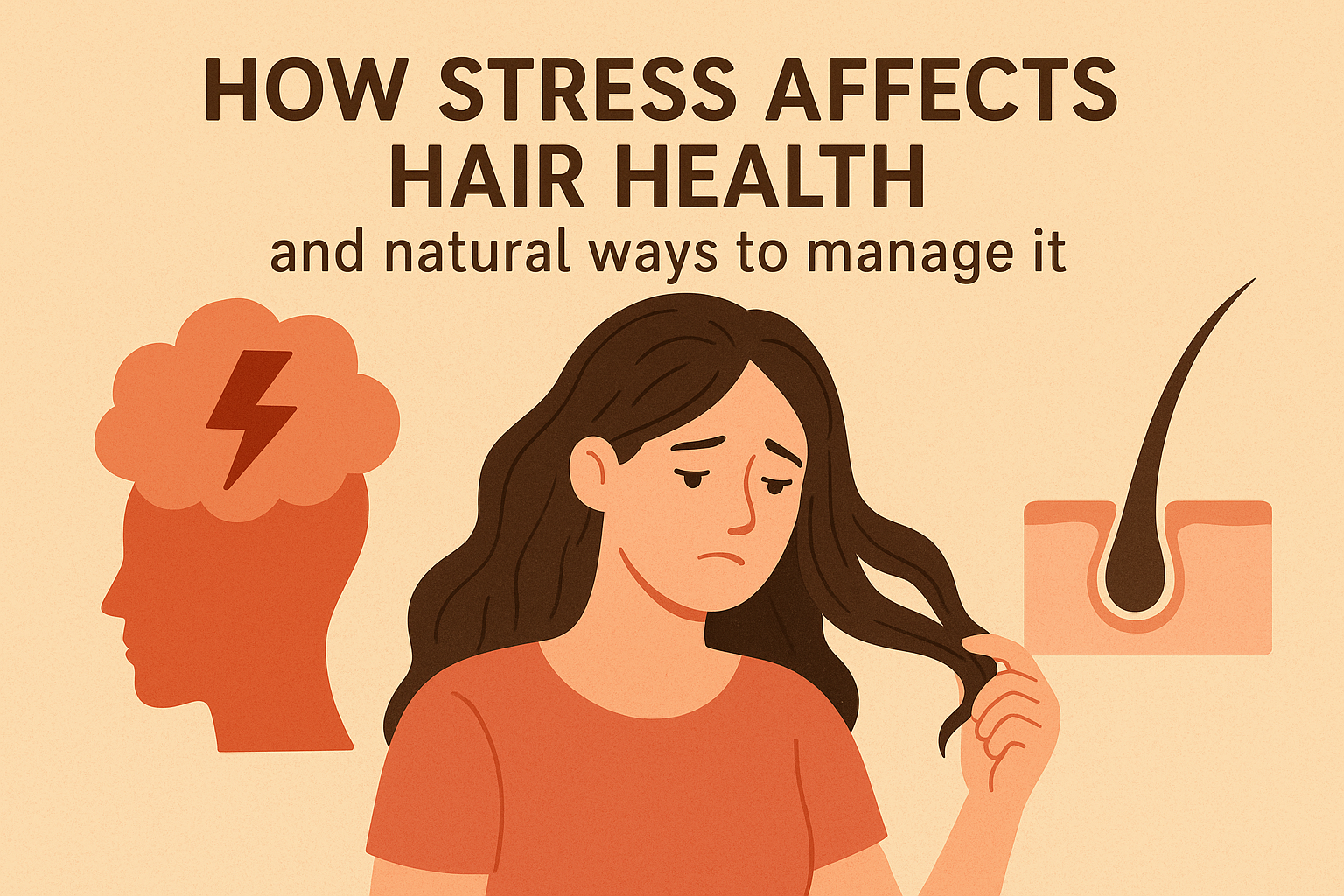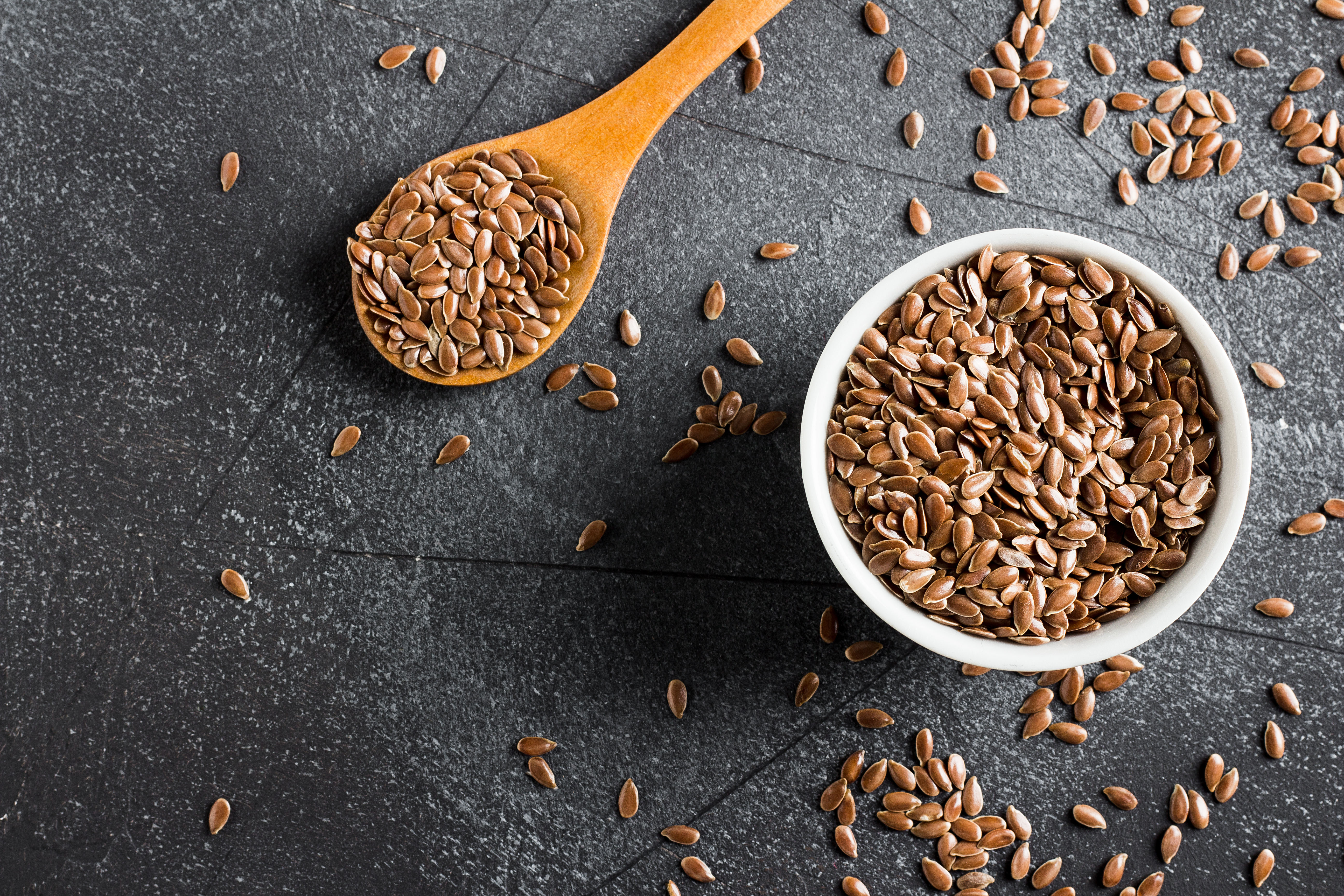You see a few more strands on your pillow, in the shower drain, or caught in the tangles of your comb, and you begin to feel the quiet dawn of worry: Am I losing hair too much? While shampoo, oils, and sometimes genetics are blamed, we overlook diet.
Hair follicles are living structures relying on nutrition, and nutrition hinges on consistently consuming it. Your muscles rely on protein, your bones on calcium, and your hair requires vitamins, minerals, and protein to have strength. When your nutrient supply weakens, strands become thinner and you start thinking What can I eat to prevent hair loss?
So, the question arises, what can I eat to stop my hair falling out? The answer is found in simple, everyday foods that serve as fuel for your scalp and strengthen the roots from the inside out.
Also Read: How to know if you have low or high porosity hair?
What Should I Eat to Minimize Hair Shedding?
Your hair is made of living protein; it needs the right fuel to remain healthy. When your meals do not contain nutrients your body requires, hair follicles may weaken and the strands may be more likely to shed. The right foods will offer your hair’s ecosystem everything that it needs for healthy, resilient hair.
Here is why your diet is important for avoiding hair shedding:
1: Protein is the building block: Hair is mostly fully keratin (a protein). If you don’t consume enough, the strands will be fragile.
2: Iron supports circulation: Low iron leads to low blood supply to the hair follicles, which may cause the hair to be thinner and fragile.
3: Vitamins are protective: Vitamins C and E are primary antioxidants that help protect the hair follicles from damage during stress.
4: Healthy fats support the roots: Omega-3 fatty acids keep scalp hydration and encourage healthy hair growth.
5: Minerals maintain a balance: Zinc and selenium maintain the enzymes that repair and strengthen the hair follicles.
Eating foods that contain supplies of these building blocks is one of the easiest and most natural things you can do to help reduce excessive hair fall and improve healthy hair growth.
Why Diet is Important to Hair Health
Hair does not grow just for decorative beauty; it is living tissue that indicates something about your overall health. Every hair follicle is linked to very tiny blood vessels delivering nutrients, and that means whatever diet you take, it affects hair loss and growth.
1: Nutrient supply to follicles: Hair grows faster than nearly every other cell in the body, so it needs to be constantly supplied with protein, vitamins, and minerals.
2: Deficiencies cause shedding: Low iron, vitamin D, or zinc can all be common causes of thinning and excessive shedding.
3: Balanced nutrition supports the hair cycle: A well-balanced diet will help the hair follicles stay in the growth phase longer.
4: Diet can weaken roots: Short-term diets, but also, uncontrolled sugar and poor food choices, can weaken the health of the follicles and the scalp.
5: Long-term health is stronger health: Good nutrition, over time, means thicker, shinier hair that is less likely to break.
The way the scalp acts is a growth medium, and when it is fed nutrients, and living things like hair can flourish, but without food and care, individual hair strands would succumb to external forces as early as their normal growth cycle.
Also Read: Is it okay to comb wet hair?
Best Foods to Prevent Hair Loss and Halt Hair Shedding
Many individuals question, What can I eat to prevent hair loss? or What can I eat to stop my hair falling out? Think of prevention to preserve what you already have rather than treatments to connect flowing locks, cuts, and losses. The solution lies in everyday foods containing protein, vitamins, minerals, and healthy fats that help to build stronger roots, protect follicles, and prevent unwanted hair shedding.
Here are the major classes of food your hair needs:
Protein-Rich Foods for Stronger Hair
Hair is made up of protein, meaning that without protein, you’re going to end up with weak, short, and fragile strands.
1: Eggs: In addition to being a great source of protein, they also contain biotin and keratin.
2: Fish and chicken: Sellers of lean animal proteins, assisting in thick hair growth.
3: Lentils and beans: Plant-based proteins, which can power up hair follicles.
4: Greek Yogurt: In addition to protein, Greek yogurt also has vitamin B5, which can be beneficial for scalp circulation.
Iron-rich Foods to help with hair loss
Iron carries oxygen to hair follicles and is necessary to keep hair follicles vigorously active and healthy. Iron deficiency is one of the leading reasons people have hair loss or thinning hair.
1: Spinach and kale: it is also loaded with vitamin C to improve iron absorption.
2: Red meat: it has heme iron because it’s animal-based, and is the most easily absorbed.
3: Pumpkin seeds: nuts for their density come in with iron and zinc.
4: Legumes: contain iron and other minerals, like chickpeas.
Also Read: Does dry shampoo cause hair fall?
Omega-3 and Healthy Fats for Moistened Follicles
Healthy fats keep the scalp moisturized and at bay inflammation that leads to shedding.
1: Salmon and mackerel: High in omega-3 for stronger hair.
2: Walnuts: Plant-based fats and biotin.
3: Flaxseed and chia seeds: Vegetarian sources of omega-3.
4: Avocados: Healthy fat, vitamin E to protect follicles.
Biotin and B-Vitamin Sources for Growth
B vitamins, including biotin, are important for keratin synthesis and support a healthy growth cycle.
1: Egg yolks: There is a high amount of biotin in the yolk.
2: Sweet potatoes: Rich in biotin and beta-carotene for scalp health.
3: Nuts and seeds: Almonds, sunflower, and peanuts are high in B vitamins.
4: Whole grains: Biotin, iron, and fiber for sustained energy.
Vitamin C and Antioxidants For Collagen Source
Antioxidants protect against oxidative stress, which shortens the life of each strand.
1: Citrus fruits: oranges, lemons, and limes, as a source of vitamin C.
2: Berries: They are antioxidants to help fight free radical damage.
3: Bell Peppers: Higher vitamin C content than most fruits.
4: Tomatoes: Source of vitamin C and lycopene.
Zinc and Vitamin D Foods for Hair Density
Both nutrients contribute to hair density and help begin new follicle growth!
1: Oysters: One of the best sources of zinc.
2: Fortified cereal and milk: Help boost vitamin D levels.
3: Mushrooms: Natural plant-based vitamin D.
4: Fatty fish: A twofer. Providing both vitamin D and omega-3.
By including these foods as part of your regimen, you are not just considering what can I eat to prevent hair loss, but you are also finding long-term answers to what can I eat to stop my hair falling out. The trick is consistency! Hair does best with consistent nutrition, not a quick-fix diet!
How to Change Your Diet to Naturally Help Hair Loss
Knowing what foods can help you is only half the battle. How you consume food every day is just as important. You’ll notice a change in your hair and its growth, feel, and shedding by simply making small and consistent changes to your diet.
Here are a few simple strategies to make this happen:
1: Eat balanced meals: Try to get your proteins, complex carbohydrates, and healthy fats in every meal so your follicles are being nourished throughout the day.
2: Drink water: Water is essential for scalp circulation and hydration. Dryness could worsen shedding.
3: Avoid crash diets: Don’t starve your follicles by drastically cutting calories. This can trigger a temporary loss.
4: Snack choices: Think about snacking on seeds, nuts and fruit instead of candy or potato chips. This will keep your nutrient levels high, while maintaining health.
5: Variety is key: You should rotate food choices every few days for leafy greens, grains, and protein. This allows your hair to receive a range of nutrients.
6: Avoid processed food: Too much sugar, fried food, and refined carbohydrates could inflame your scalp and stunt healthy hair growth.
If you establish these habits, you will ensure that your nutrients from meals are being delivered consistently to your scalp, allowing for strong growth and strong anchorage.
Foods to Avoid When You Are Experiencing Hair Loss
Just like some foods can benefit your hair, there are others to avoid that will act against you. A diet high in processed or inflammatory foods will weaken your follicles, disrupt hormones, and lead to greater hair loss over time.
Here are some of the foods you should keep to a minimum if you want to have stronger hair:
1: Sugary snacks and beverages: Too much sugar can spike insulin and hormone levels that may increase shedding.
2: Deep-fried foods: A diet high in unhealthy fats can inflame the scalp and reduce circulation.
3: Excess salt: excess sodium will dehydrate both your body and scalp, resulting in fragile hair.
4: Processed junk food: Many packaged snacks and fast food include very few nutrients for your hair follicles.
5: Excess alcohol: Excess consumption reduces the absorption of important vitamins.
This does not mean you can never enjoy the above items, but reducing or avoiding them can help create a healthier internal space for your hair to grow strong.
Also Read: Can hard water damage cause hair loss?
Conclusion
The types of food you consume play an important role in the health and strength of your hair. Consuming food with enough protein, iron, vitamins, and healthy fats aids in supplying the requirements needed for the health of the scalp. If you often ask, What can I eat to stop my falling hair? And what can I eat to prevent hair loss? The answer is to make a few simple, regular choices at every meal. With an emphasis on balance and moderation, your diet can be the most powerful change you will make on your journey toward healthy hair that is thicker and stronger.
FAQs
1. Can dehydration lead to hair loss?
Yes, lack of water can decrease circulation to the scalp and will make hair dry and prone to breaking.
2. Does caffeine affect hair health?
Excess caffeine can decrease nutrient absorption, but moderate amounts can improve circulation.
3. Do dairy products help hair?
Low-fat dairy provides protein and vitamin D. Excess dairy can sometimes contribute to oiliness on the scalp for some individuals.
4. Can skipping breakfast cause hair loss?
Starving the body of nutrients just starves the follicles and, therefore, weakens future hair in the long run.
5. Can stress affect how food impacts hair?
Chronic stress can decrease the availability of nutrients to the hair, which can alter the hair growth cycles and affect hair growth regardless of diet.
6. Is collagen good for helping to prevent hair loss?
Collagen helps maintain the structural integrity of the scalp and helps the hair follicles be strong, so there is less shedding.
7. Can spicy food trigger hair loss?
Too much spicy food can contribute to inflammation in your scalp, but moderate amounts consumed aren’t dangerous.
8. Can probiotics help improve hair growth?
Yes, when your gut is happy and healthy, your body is much more able to absorb nutrients better, resulting in stronger hair.
9. Does intermittent fasting affect hair?
Extended periods of fasting, while not balancing nutrition, can provide a chance for temporary shedding to occur.
10. Can cooking techniques vary in nutritional levels for hair?
Yes, steaming or cooking food for a short amount of time can retain more vitamins than deep frying or overcooking.



